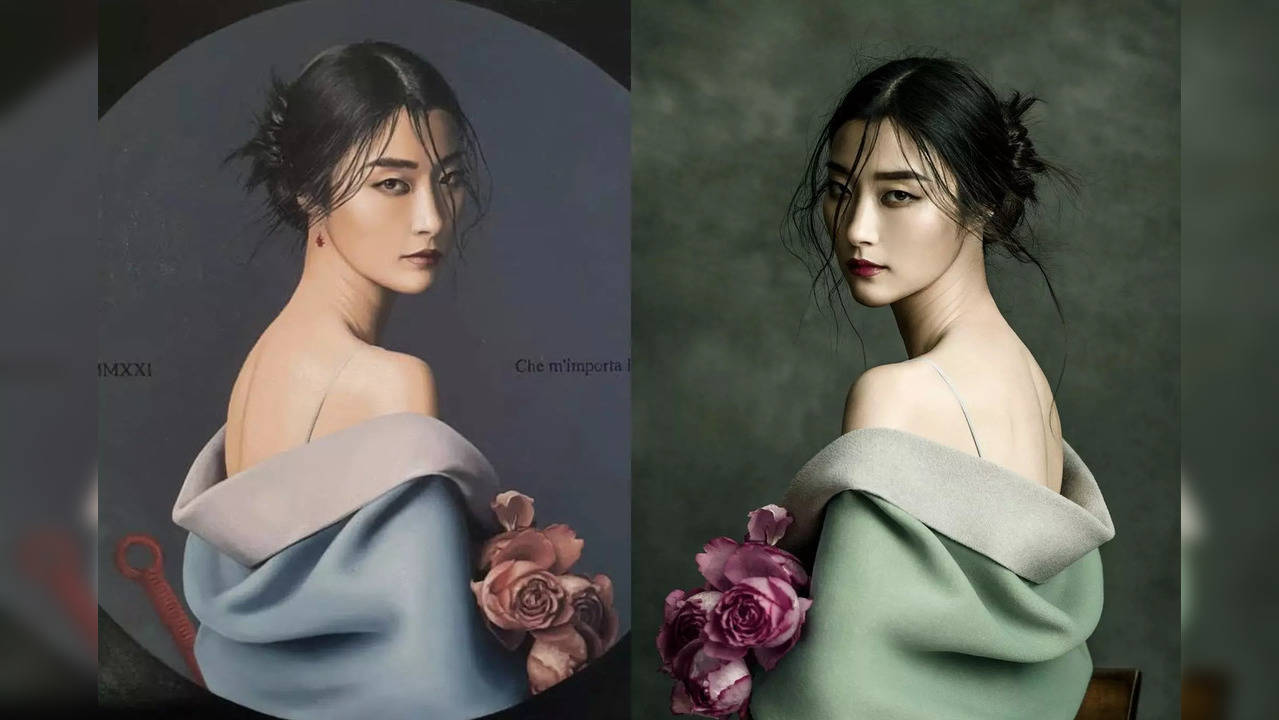Jingna Zhang Wins Luxembourg Copyright Case Against Jeff Dieschburg
Singaporean photographer Jingna Zhang secures a significant win in her copyright battle against artist Jeff Dieschburg as the Luxembourg court rules in her favor. The decision highlights the importance of consent in creative work usage and dispels misconceptions about copyright infringement. Zhang's victory, after enduring harassment and intimidation, serves as a beacon for artists worldwide, reaffirming their rights in the digital age.

Side-by-side comparison: Jingna Zhang's original photograph (right) and Jeff Dieschburg's disputed painting (left) at the center of the landmark copyright case.
Photo : Twitter
In the latest development, Jingna Zhang, a Singaporean photographer, has emerged triumphant in her copyright dispute with artist Jeff Dieschburg. Marking a significant victory for Zhang in this highly publicized case, the Luxembourg court has ruled in her favor, affirming her rights over her original artwork.
The photograph in question, originally a part of the Harper’s Bazaar Vietnam cover shoot in 2017, led to a heated dispute when Zhang accused Dieschburg of copyright infringement. According to Zhang, Dieschburg created a painting that strikingly resembles her original photograph without obtaining her consent. The photographer stumbled upon the resemblance while the painting was being exhibited at the Strassed Contemporary Biennial.
The case continued to unfold over a period of two years, plunging Zhang into a web of complex legal disputes. She confronted many challenges, including doxxing, threats and intimidation. However, fueled by her commitment to prevent exploitation and to safeguard the rights of artists like herself, Zhang remained unmoved.
The latest ruling by the Luxembourg district court overturned a previous verdict that favored Dieschburg. The court recognised the importance of consent in the use of creative work, irrespective of its medium or its availability online. Zhang’s triumph reverberates across the artistic world, dispelling any notion that suggests using a different medium qualifies as transformation and frees individuals from copyright obligations.
After the verdict, Zhang took to X (formerly Twitter) to express her gratitude to the Luxembourg judicial system. She tweeted, “I want to thank Luxembourg & its judicial system for upholding copyright protection for an individual, esp in time of AI where our rights seem to be quickly eroding. And to my lawyer Vincent Wellens & co at NautaDutilh—thank you for fighting to protect the rights of artists.”
“I’m grateful for the incredible kindness of the people of Luxembourg and everyone around the world. Your help and support meant a lot when my world was breaking apart,” she added.
By Jenel Treza Albuquerque
Trending:
End of Article
Subscribe to our daily Newsletter!
Related News






Over 300 Feared Dead Under Landslide In Papua New Guinea | VIDEO

Canada To Deport Indian Truck Driver After 16 Killed In Mishap

COVID-19 'Erased 10 Years Of Gain In Global Life Expectancy': WHO Report

5-Year-Old Gets ‘Iron Man’ Themed Prosthetic Arm, Becomes Youngest Recipient Of Bionic Hand

India-Estonia Cyber Security Cooperation to Combat Growing Threat from Chinese Hackers









